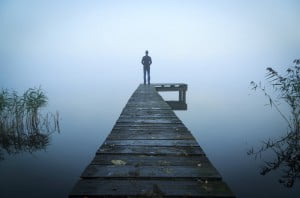Hundreds of Deaths at Gosport War Memorial Hospital
The public enquiry has led to an out cry by the relatives to call for prosecutions concerning the deaths of elderly patients at the hospital between 1988 – 2000 and no doubt in due course there will be questions following the Gosport Inquiry about compensation claims for the loss of a loved one.
The Gosport Enquiry was led by the former Bishop of Liverpool, the Rt Rev James Jones. It may be recalled that the Bishop has had extensive experience in the Inquiry that led to the tragic deaths of the 96 Liverpool supporters who died at Hillsborough following a football match.
The tragic deaths at Goport, it is reported in The Times, was initially raised by nurses about the over-use of the powerful painkillers at as far back as the early 1990’s. but those concerns were dismissed.
The practice of over-use opioids (pain killers) appears to have continued unabated. The Independent Panel, found that 456 patients had died in hospital due to:
‘..an institutionalised practice of the shortening of lives through administering opioids without medical justification”.
The Gosport Independent Panel investigation, began four years ago in 2014, and considered a voluminous about of documentation. It concluded that:
“there was a disregard for human life and a culture of shortening lives of a large number of patients” at the Hampshire hospital.’
There is also the possibility that up to 200 more patients may also have died but there were gaps in the record keeping that may have provided a more accurate assessment.
The Inquiry was of the view that it was the ‘norm’ that patients were prescribed powerful pain-killers. A clinical assistant at the hospital informed the Inquiry had said that it was the norm “for the practice of prescribing which prevailed on the wards.”
The General Medical Council ruled that Dr Barton, who is at the centre of the Inquiry, was guilty of repeated professional misconduct relating to 12 patients who died at the hospital, but she has never faced criminal charges.
Bishop Jones was of the view that the result of the inquiry was a “vindication” of the families’ “tenacious refusal to be dismissed”. It is reported that his words led to “a collective intake of breath from 150 people”, according to those present.
Gosport Inquiry – The Failure by Those Who Are In Charge to Protect The Vulnerable.
Whilst justice will turn it wheels slowly, it has, it appears it has reached the right result. It is quite right that the families affected ensure that justice prevails. Not only has the Inquiry led to mistakes being uncovered but those who are at the centre of the storm be punished for what they have done.
But in addition, lessons must be learnt about those who are in charge of the institutions that are there to protect the vulnerable. The whistle-blowing that sounded the alarm many years ago where the NHS failed to act is an important point. It is reported that nurses attempted to raise concerns with management but were ignored, owing to a culture at the hospital that meant doctors’ decisions could not be questioned, the report said, adding: “The opportunity was lost, deaths resulted.”
The Times reported that the NHS was reluctant to press ahead with its own inquiries because it feared compromising police work. Coroners inexplicably waited nearly two years to carry out inquests after the CPS had decided not to prosecute.
There were multi-party party failures where the Inquiry must lead to ensure that whilsteblowers are legally protected and full an proper investigations are undertaken.
Patients To Dye Prematurely in Hospital
Patients are likely to be dying prematurely in hospitals today, according to Professor Sir Brian Jarman, director of the Dr Foster Unit at Imperial College London.
Here there is concerns when health safety data, was analysed. There was a desire among officials “not to know” when things went wrong.
He warned that whistleblowers had been “fired, gagged and blacklisted”.
The need for legal protection for whistleblowers is paramount especially in the NHS. At school or at home when you are a child you take a dislike to anyone who ‘snitches’ you by a ‘mate’ or a sibling. But when lives are at stake, when procedures go wrong, how do you complain to those who are ‘above you,’ are senior, more qualified and respected.
That is the dilemma facing not just the NHS but other organisations. However the NHS is in a position where life and death are at stake. The former High Court Judge Dame Janet Smith (I had a multi-party 6 week hearing before her back in 1996) was on BBC 2 Newsnight and expressed the view that her Inquiry into the Shipman Inquiry into the murders appears not to have made any impact on protection and listening to whistleblowers within the NHS.
Will the Gosport Inquiry make a difference? Let’s hope so. There are patients out there now, in the NHS where I am sure, decisions taken by senior medical staff are questionable. Again the actions of the minority taint the majority, but such actions have a devastating impact when they go wrong. Who protects the vulnerable? The last resort surely should not be the lawyers.
Gosport Inquiry Compensation Claims
The last thing in families minds is compensation. As experienced fatal accident solicitors dealing with bereaved families justice and the truth of what happened to their loved one is a priority. But when the investigation has been completed (or during) it is possible to claim compensation for the loss of life, grief and dependency when a loved one passes in an untimely and unjust way caused as a result of the negligence of another. The majority of claims will be brought under The Fatal Accidents Act 1976 .
As solicitors who specialise in fatal accident compensation claims, one other avenue could still be open for families is to make a claim following the Gosport Inquiry. Proceedings may be required in a short period of time due to the fact usually the law only permits claims to be pursued within three years from the date of death. However there is a discretion by the Courts to allow for Gosport Inquiry Compensation claim to be pursued if it was unjust not to do so. One major point in the families favour would be due to the fact that it was only following the result of the Inquiry that they knew the full extent of the harm and possible negligence that resulted in the deaths of their loved ones. They could not have known earlier, for sure and thus a potential civil claim for damages could be made to over come the limitation period.
This article is written by R James Hutcheon, Solicitor specialising in serious injury and fatal accident compensation claims.





